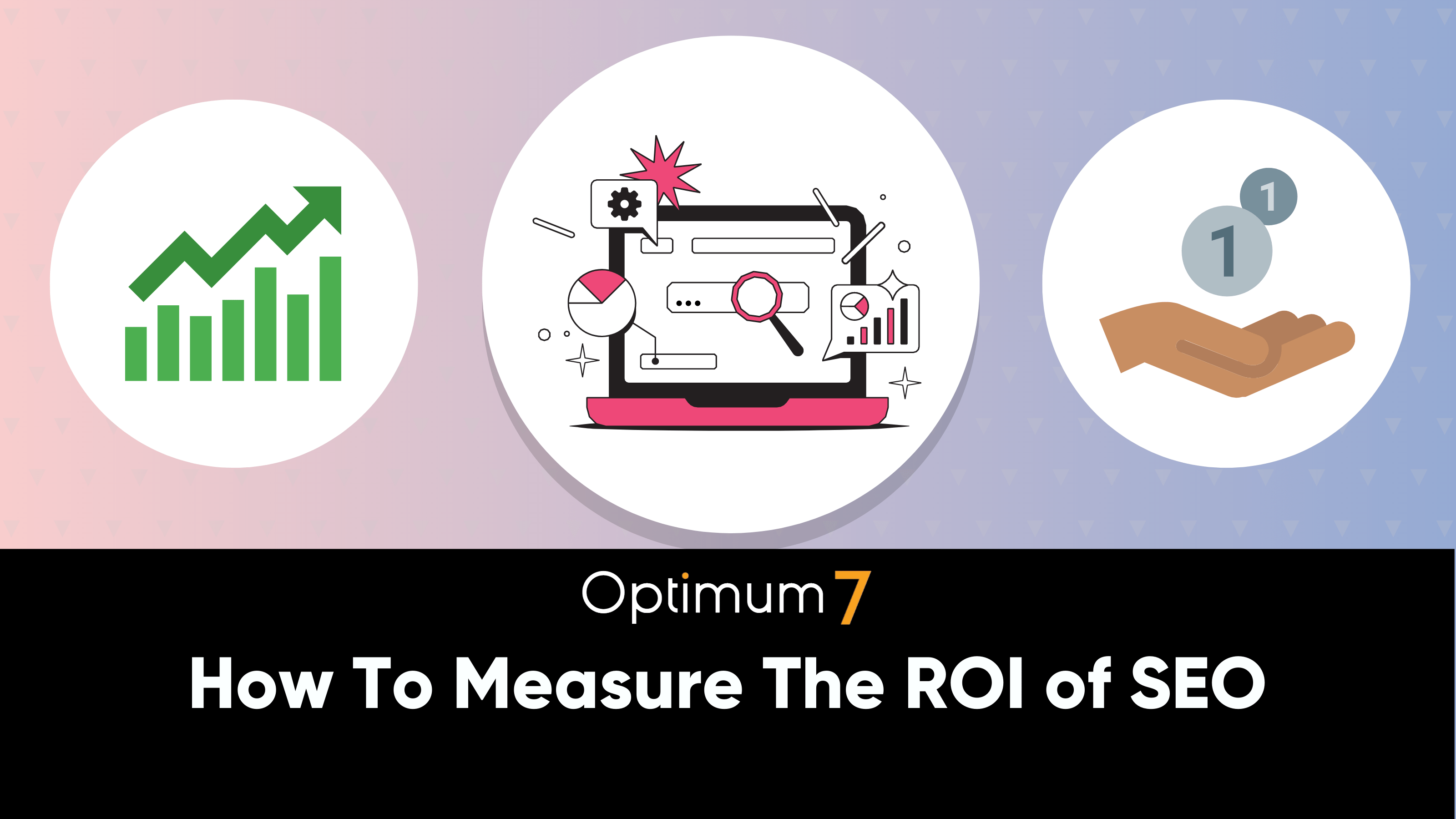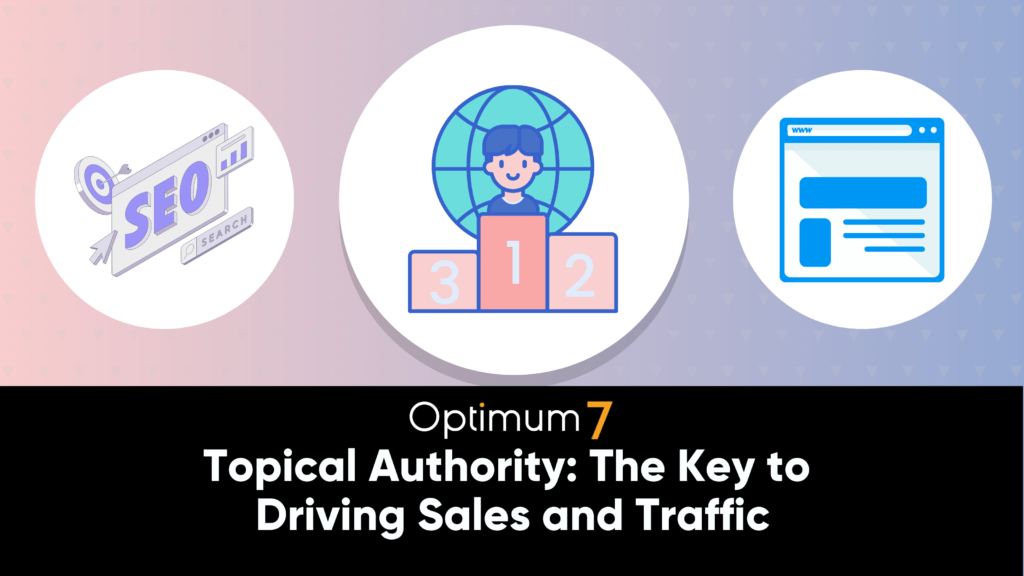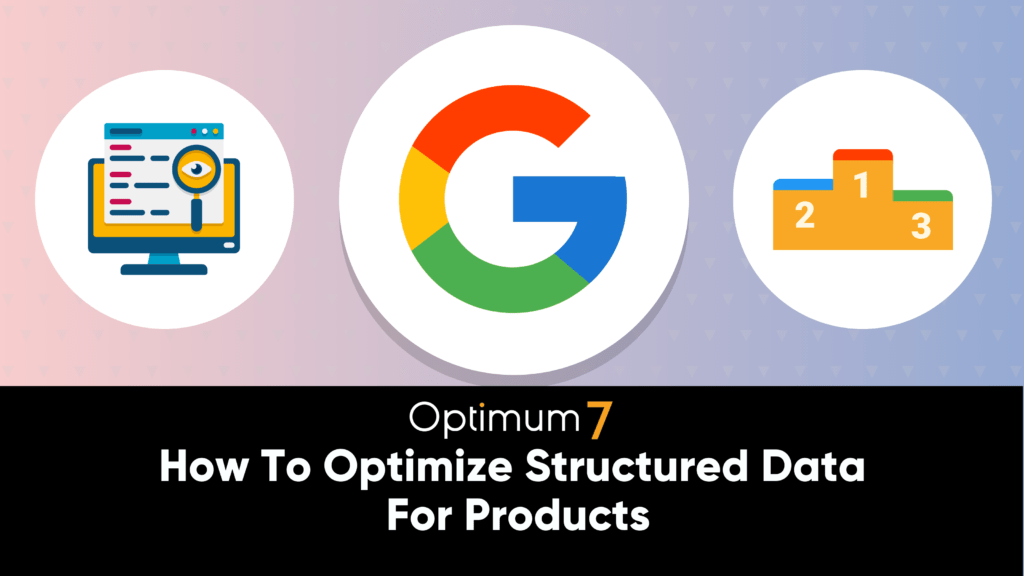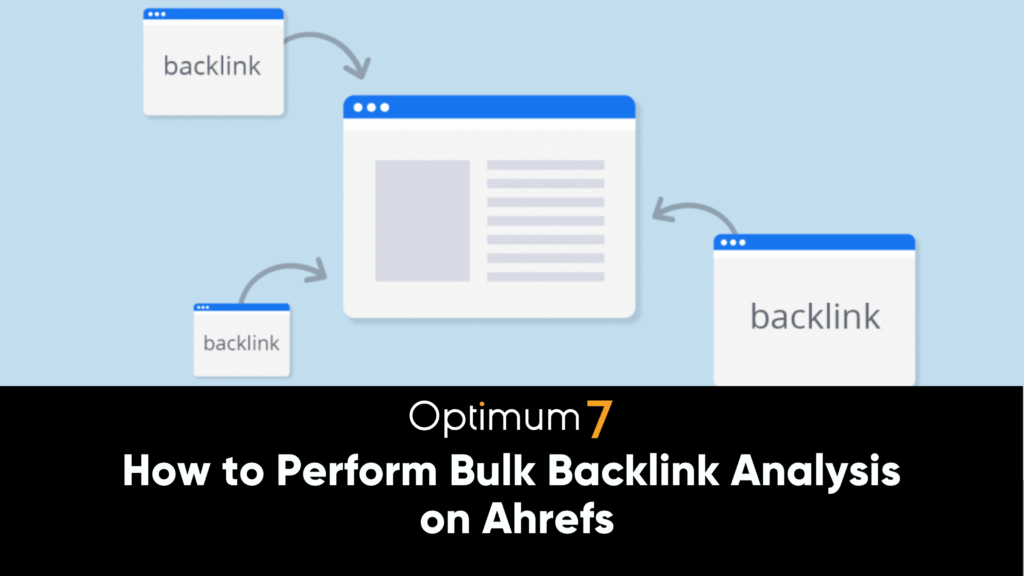Marketing ROI has always been a tough nut to crack. You invest time, money, and effort, but figuring out what really works can feel like shooting in the dark. SEO is no different. It’s crucial for driving organic traffic, but how do you know if all those optimizations, keywords, and content updates are actually paying off?
Getting a clear handle on your SEO ROI is vital. Without it, you’re just guessing and hoping for the best. Businesses need to see real, tangible results to justify their investment in SEO. Understanding the exact returns on your SEO efforts can help you allocate your budget wisely and make informed decisions that lead to better outcomes. At Optimum7, we remain hyper focused on ROI for our clients, and in this article we are going to overview how to measure ROI effectively.
Key Metrics for Measuring SEO Success
Determining the right metrics is crucial for understanding the true impact of your SEO efforts. Unlike short-term marketing tactics, SEO is a long-term play, requiring patience and consistent tracking to reveal its full potential. Focusing solely on keyword rankings is a start, but a comprehensive view of various metrics will give you a clearer picture of how your SEO strategies are performing and contributing to your overall business goals.
Keyword Rankings
Keyword rankings are a no-brainer. Tracking your rank for relevant bottom-of-the-funnel keywords is essential, as these terms are directly tied to your business and have the potential to convert searchers into customers. Monitoring your position in the search engine results pages (SERPs) for these crucial keywords helps ensure you are reaching the right audience.
Organic Traffic
Organic traffic measures the number of visitors coming to your site from search engines without paid promotion. It’s fundamental to evaluate whether your pages are increasing visibility and attracting potential customers. A steady rise in organic traffic indicates that your SEO efforts are successfully bringing in more visitors through search queries.
Conversion Rates
Conversion rate looks at the percentage of visitors who complete desired actions on your site, such as making a purchase or filling out a contact form. Driving traffic is one thing, but if it doesn’t convert, it doesn’t matter much. This metric evaluates how well your target keywords and messaging resonate with your audience, leading them to take action.
Brand Searches
If you’re pursuing more informational content, it’s important to see increases in brand searches. This metric reflects how often people are searching for your brand specifically, indicating that your efforts are growing brand awareness and recognition—a crucial long-term goal of any SEO strategy.
Revenue
Ultimately, the most telling metric is revenue. How many dollars are your organic search efforts driving? This straightforward measure ties your SEO activities directly to your financial outcomes, providing a clear indication of success.
Secondary Metrics
In addition to the primary metrics, consider tracking these secondary metrics to gain deeper insights into your SEO performance:
- Referring Domains: Monitor the number of unique domains linking to your site. More referring domains can boost your site’s authority and improve search rankings.
- Keywords on Page 1: Track the number of keywords your site ranks for on the first page of search results. Being on page one significantly increases the likelihood of attracting clicks.
- Keywords in the Top 3: Aim to have your most important keywords in the top three positions of SERPs, as these spots get the majority of clicks.
- Cost Per Click (CPC): Calculate the cost per click by dividing your marketing spend (SEO cost) by the number of clicks from organic search. This helps you understand the value you’re getting from your SEO investment.
Tools and Technologies for Tracking SEO Metrics
Accurate measurement of SEO metrics requires leveraging the right tools and technologies. These tools not only provide valuable insights but also help in tracking and analyzing data effectively to optimize your SEO strategies. Here’s a rundown of essential tools and technologies for measuring SEO success:
- Your eCommerce Platform: The platform you use for your ecommerce site significantly impacts your ability to track and measure SEO metrics. BigCommerce and Shopify are highly recommended due to their robust built-in analytics and SEO tools. Other platforms may require extensive modifications and customizations to measure many metrics effectively. Using BigCommerce or Shopify ensures you have the necessary tools at your fingertips to monitor and optimize your SEO performance.
- Google Analytics 4: GA4 is indispensable for reviewing traffic and understanding user behavior on your website. It tracks detailed metrics like user engagement, traffic sources, and conversion paths, helping you assess which pages drive the most traffic and conversions.
- Google Search Console: GSC offers direct insights into your site’s visibility on Google. It provides valuable data on search queries, page rankings, and click-through rates for specific keywords, and alerts you to any crawl errors or security issues.
- Ahrefs Webmaster Tools: Ahrefs offers a free tool for webmasters to track the keywords they rank for and their search volumes. It’s excellent for monitoring keyword performance and identifying improvement opportunities. It also provides insights into your backlink profile, helping you understand their impact on your SEO.
- Spreadsheets: Spreadsheets are great for compiling and analyzing data from various sources. By consolidating data from GA4, GSC, and Ahrefs into a single spreadsheet, you can track trends over time, perform in-depth analyses, and create custom reports. This organized approach helps you make informed decisions based on comprehensive data.
Calculating SEO ROI
Understanding the ROI of your SEO efforts is crucial for assessing the effectiveness and financial impact of your strategies. By accurately calculating SEO ROI, businesses can justify their investments and make informed decisions. Here’s how to approach it:
Formula for SEO ROI: The Foundation of Financial Analysis
The basic formula for calculating SEO ROI is straightforward:
SEO ROI = (Gain from Investment − Cost of Investment) / Cost of Investment
This formula provides a clear financial metric to assess how effectively your SEO strategies are contributing to the bottom line.
Direct Revenue from SEO
Measuring revenue from organic search is relatively straightforward. By tracking conversions from organic traffic using tools like Google Analytics, you can assign a monetary value to each conversion. This includes direct sales for e-commerce sites or the value of leads for service-based businesses. The key is to establish a clear link between organic traffic and revenue outcomes.
Lifetime Value of Customers (LTV)
Incorporating the Lifetime Value of Customers (LTV) into your SEO ROI calculation offers a more comprehensive view. LTV estimates the total revenue a business can expect from a single customer throughout their relationship. This metric is crucial for understanding the long-term impact of SEO on customer acquisition and retention. By factoring in LTV, businesses can assess whether higher initial customer acquisition costs are justified over time.
Cost Assessment
An accurate assessment of SEO ROI requires a thorough evaluation of all associated costs. This includes:
- SEO Tools: Expenses for tools like Ahrefs, SEMrush, and Moz.
- Consultants/Agencies: Costs for hiring SEO consultants or agencies.
- Internal Resources: Time and effort spent by in-house teams on SEO-related tasks.
By itemizing these costs, businesses can get a clear understanding of their SEO investment.
Additionally, calculating the overall cost per click (CPC) by dividing SEO spend by the number of organic clicks provides insight into the efficiency of your investment.
Compiling Data
To effectively track SEO ROI, compile all relevant data into a master spreadsheet. This should include metrics such as organic traffic, conversion rates, revenue, LTV, and costs. By organizing this data, you can track performance month over month and year over year.
This longitudinal view helps determine the effectiveness of your SEO efforts and whether they are trending in the right direction. Regularly updating and analyzing this spreadsheet will provide a comprehensive overview of your SEO performance, allowing for data-driven decisions and continuous optimization.
Challenges in Measuring SEO ROI
The primary challenge in measuring SEO ROI is interpreting the data and transforming it into actionable strategies. Reporting numbers is just the first step; the real value lies in understanding how to leverage that data to improve performance. A strong SEO strategy should not only boost organic traffic but also positively impact direct traffic numbers. This happens because effective SEO increases brand visibility and recognition, leading to more direct searches and visits. Moreover, a comprehensive digital strategy benefits multiple channels, creating a synergy that enhances overall marketing efforts.
Attributing success specifically to SEO can be complex, especially when multiple marketing channels intersect. SEO efforts often overlap with brand strategies, making it challenging to distinguish between organic and direct traffic. However, a well-executed organic strategy should show clear signs of brand leverage in organic traffic. Sophisticated attribution models and tools can help clarify the role of SEO in driving conversions and revenue, but they require skilled analysis to be effective.
SEO is inherently a long-term strategy, with results often taking months to materialize. This delayed gratification can make it challenging to measure immediate ROI and maintain stakeholder patience. Continuous monitoring and consistent effort are essential, but businesses must be prepared for the long haul to see substantial returns from their SEO investments.
Finally, search engines like Google frequently update their algorithms, which can impact your site’s rankings and visibility. These changes add a layer of complexity to measuring SEO ROI, as fluctuations in traffic and rankings may not always reflect the effectiveness of your strategy. Staying adaptable and keeping up-to-date with the latest SEO trends and algorithm updates is crucial for maintaining and improving ROI.
By addressing these challenges with a strategic approach and expert analysis, businesses can turn raw data into actionable insights, ultimately improving their SEO ROI and achieving long-term success.
Optimum7: Your Partner in Maximizing SEO ROI
At Optimum7, we’re obsessed with tracking and improving SEO ROI. Our team sets up sophisticated tracking and reporting systems to meticulously highlight the primary and secondary elements of ROI. We believe that precise measurement is the foundation of effective SEO strategies, allowing us to understand what works and where improvements are needed.
By focusing on comprehensive data analysis and actionable insights, we can quickly design and implement strategies to enhance your SEO performance. Our commitment to continuous optimization ensures that your SEO efforts are always aligned with your business goals, driving sustained success and measurable results. Partner with Optimum7 to maximize your SEO ROI and achieve unparalleled growth.









